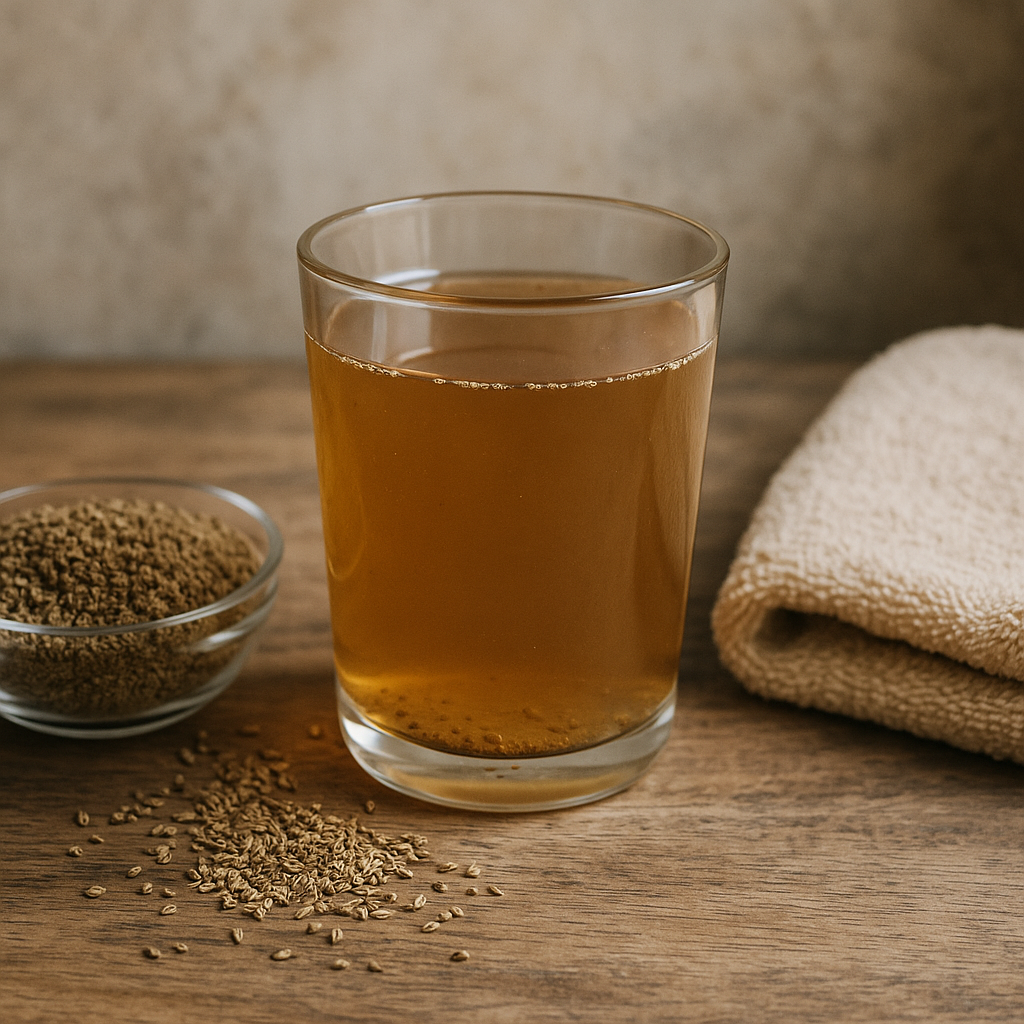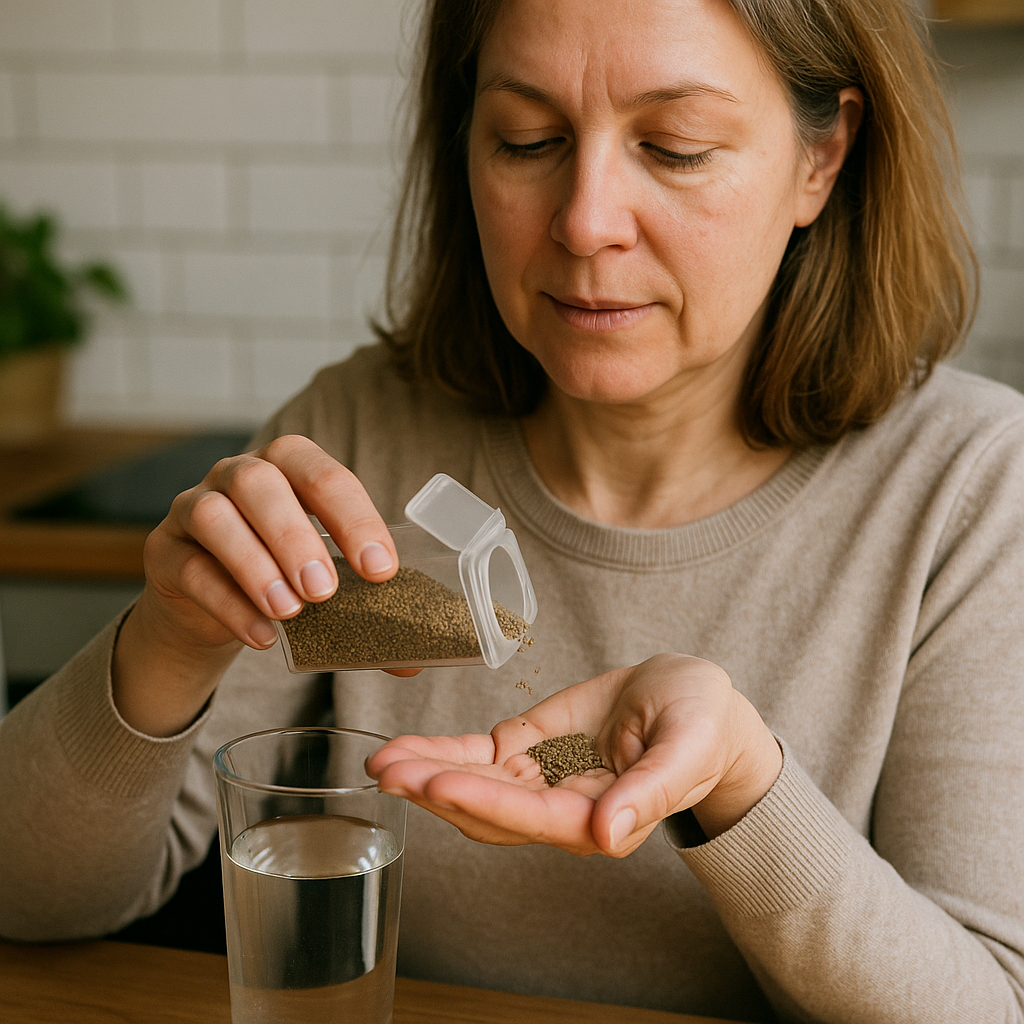Ask Ayurvedic doctor a question and get a consultation online on the problem of your concern in a free or paid mode. More than 2,000 experienced doctors work and wait for your questions on our site and help users to solve their health problems every day.
Is Ajwain Good for Constipation? Ayurvedic Perspective and Remedies

Constipation. Ugh, right? It’s uncomfortable, annoying, and sometimes even painful. If you've been feeling bloated, sluggish, or just not “regular,” you’re not alone. Many people around the world deal with digestive issues, and constipation is one of the most common. But here's the good news: there's a simple, natural remedy that’s probably already in your kitchen. Ajwain, also known as carom seeds, has long been used in Ayurveda to support digestion and ease tummy troubles.
So, is ajwain good for constipation? You bet. In fact, ajwain for constipation has been a go-to in traditional medicine for centuries. From ajwain water for constipation to chewing the seeds raw, there are plenty of ways to tap into its digestive benefits. In this article, we’ll dive into how ajwain helps in constipation, how to use it effectively, and who should maybe skip it.
Let’s get started, shall we?

Ajwain in Constipation Relief: How It Works
Ajwain isn’t just another spice with a fancy name. It’s a powerhouse of enzymes and essential oils, especially thymol, that stimulate digestion and help your gut move things along (if you catch my drift). When you consume ajwain, it boosts the secretion of gastric juices, which in turn can help break down food faster and reduce bloating or indigestion.
So does ajwain help in constipation? Yes, absolutely. It’s not a laxative in the traditional sense, but it supports the body’s natural process of eliminating waste by improving digestion. Think of it as a gentle nudge rather than a harsh push.
Don't wait or self medicate. Start chat with Doctor NOW
How to Use Ajwain for Constipation Relief
You might be wondering, “Okay, but how do I actually use this stuff?” Great question. There are a few effective ways to incorporate ajwain into your daily routine.
How to Eat Ajwain for Constipation
One of the simplest ways is to chew about half a teaspoon of ajwain seeds after meals. You can swallow them with warm water or just chew and go. If the taste is too strong (it’s a bit spicy, not gonna lie), mix it with a pinch of black salt or a drizzle of honey.
Pro tip: Don’t overdo it. Just because a little helps doesn't mean more is better.
How to Take Ajwain for Constipation Relief at Home
Another popular method is to roast the seeds lightly, grind them, and mix them with a bit of dry ginger powder and black salt. Take this mixture with warm water before bedtime. It's an old Ayurvedic remedy that has worked wonders for many.
Some people even use ajwain in cooking curries or parathas — a subtle way to include it without even noticing.

Benefits of Ajwain Water for Constipation
Now let’s talk about the real star: ajwain water for constipation. It’s easy to make, soothing to drink, and surprisingly effective.
Is Ajwain Water Good for Constipation?
Yes, ajwain water is good for constipation, especially if you drink it warm first thing in the morning. It rehydrates the digestive tract, stimulates bowel movement, and gives your system the gentle push it needs. It also helps reduce gas and bloating, which, let’s be real, nobody wants to talk about but everybody experiences.
How to Make Ajwain Water for Constipation Relief
Here’s a simple recipe:
-
Take 1 teaspoon of ajwain seeds.
-
Boil them in 1½ cups of water for 5–7 minutes.
-
Strain and sip warm.
You can also soak the seeds overnight and drink the water in the morning, though boiling tends to release more of the oils that are helpful.
Be sure not to chug it down too fast. Sip slowly to let your body adjust. And heads up — it has a strong flavor, kind of like oregano’s bolder cousin. If it’s too much, squeeze in a bit of lemon or add a tiny dash of honey.

When and How Often to Use Ajwain Remedies
Timing and consistency matter when using home remedies, especially when it comes to digestion. While ajwain can work pretty fast for some people, others might need a few days of regular use to see proper results.
Best Time to Consume Ajwain for Digestion
So, when’s the best time to take it? Many Ayurvedic practitioners recommend having ajwain for constipation either early in the morning on an empty stomach or at night before bed. Morning consumption tends to stimulate your digestive tract and get things moving, while bedtime use helps with overnight digestion and can lead to smoother mornings.
Ajwain water for constipation is especially helpful when sipped warm, first thing after waking up. It acts as a mild cleanser for your gut — sort of like giving your intestines a gentle nudge to start the day.
Some folks even pair ajwain with warm milk at night, though honestly, that combo isn’t for everyone. Try both and see what feels better for your body.
How Much Ajwain Is Safe to Take Daily?
Now, just because ajwain is good for constipation doesn’t mean you should go all in with huge spoonfuls. Moderation is key (as with most things in life, right?).
A general rule of thumb? Stick to about 1/2 to 1 teaspoon daily, either raw or as ajwain water. If you’re using it in powdered form with other ingredients, like ginger or fennel, you can go slightly higher — but don’t exceed 2 teaspoons a day unless a doctor or herbalist gives you the green light.
Overdoing it can cause acidity or even nausea in sensitive individuals. And if you’re pregnant or breastfeeding, hold on — we’ll get to that in a minute.
Who Should Avoid Ajwain for Constipation?
While ajwain helps in constipation for most people, it’s not ideal for everyone. Some groups should either use it with caution or avoid it entirely.
-
Pregnant women: Ajwain can stimulate the uterus and may not be safe during pregnancy unless approved by a healthcare professional.
-
Breastfeeding moms: There's not enough research to say it's completely safe during breastfeeding, so best to check with your doctor first.
-
People with ulcers or hyperacidity: Since ajwain is a bit spicy and stimulates digestive enzymes, it might aggravate conditions like ulcers or GERD.
-
Children under 5: While small amounts of ajwain may be used externally (like in a tummy massage oil), internally it should be avoided unless prescribed by a pediatrician.
And if you’re on medication — especially diuretics, blood thinners, or anti-inflammatory drugs — talk to your doctor. Natural remedies can interact with prescriptions in unexpected ways.
Conclusion
So, back to the big question: Does ajwain relieve constipation? The answer is yes — for most people, and when used correctly. From chewing the seeds after meals to sipping ajwain water for constipation first thing in the morning, this humble spice packs a punch. It’s an ancient remedy, but still incredibly relevant for our modern-day gut woes.
Whether you’re dealing with occasional sluggishness or chronic digestive discomfort, ajwain might be the natural ally you’ve been searching for. Just remember, it’s not a magic pill. Give it a few days, stay hydrated, and don’t forget your fiber.
Feeling better starts with small steps. Why not make ajwain your next one?
FAQs
Does ajwain help in constipation instantly?
In some cases, yes — especially if the constipation is mild and related to indigestion or bloating. Ajwain seeds, when taken with warm water or chewed after a meal, can begin working within a few hours by stimulating digestive enzymes and promoting gut movement. However, don't expect overnight miracles every time. For more stubborn cases, consistent use over a few days may be needed to see real improvement.
If you're constipated due to dehydration, poor diet, or stress (which happens more than we like to admit), ajwain can help, but it works best as part of a bigger lifestyle shift. Don’t just rely on one spice to fix it all. That’d be like slapping a band-aid on a leaky pipe.
Is ajwain water safe to drink daily?
Yep — for most healthy adults, ajwain water is safe for daily use in small to moderate amounts. Drinking a warm glass every morning can support digestion and reduce chances of constipation throughout the week. But just like with any home remedy, balance matters.
If you start experiencing heartburn or feel like your stomach’s reacting weirdly, ease off a bit and see how your body responds. Also, if you're already on medication or managing a condition like ulcers or IBS, check in with a doctor before making it a daily ritual.
Can children take ajwain for constipation?
Great question — and one that should be answered carefully. Ajwain has traditionally been used in small doses for children, especially when they’re dealing with tummy aches or mild indigestion. But giving it internally to children, especially those under 5, should be done cautiously and only with professional guidance.
For infants and toddlers, ajwain-infused oil is often massaged on the belly to help relieve gas — not consumed. If you’re considering giving ajwain for constipation to an older child, talk to a pediatrician first to make sure it’s safe and properly dosed.
Final Thoughts
So, to wrap it up — ajwain is good for constipation, but it’s not just about popping some seeds and hoping for the best. When used wisely and consistently, this little spice can become a powerful tool in your digestive health toolkit.
We covered a lot: how ajwain helps in constipation, how to prepare and consume it (from chewing the seeds to making ajwain water for constipation), and who should use it with caution. We also touched on the best times to take it, daily dosage, and some handy precautions.
And look — we get it. There’s a sea of health advice out there, and it can get overwhelming fast. But sometimes, the simplest remedies, like adding a pinch of ajwain to your day, are the ones that stick.
Ready to give your digestive system the gentle reset it’s been craving?
👉 Try adding ajwain to your routine this week — whether it’s sipping warm ajwain water in the morning or chewing the seeds after dinner. Start small, listen to your body, and see how it responds.
And hey, if you found this article helpful, share it with a friend or family member who’s always battling digestion issues. You might just change their week — or their gut health — for the better.
Got questions, tips, or your own success story with ajwain? Drop it in the comments or tag us on social. Let’s keep the conversation flowing. 😉

